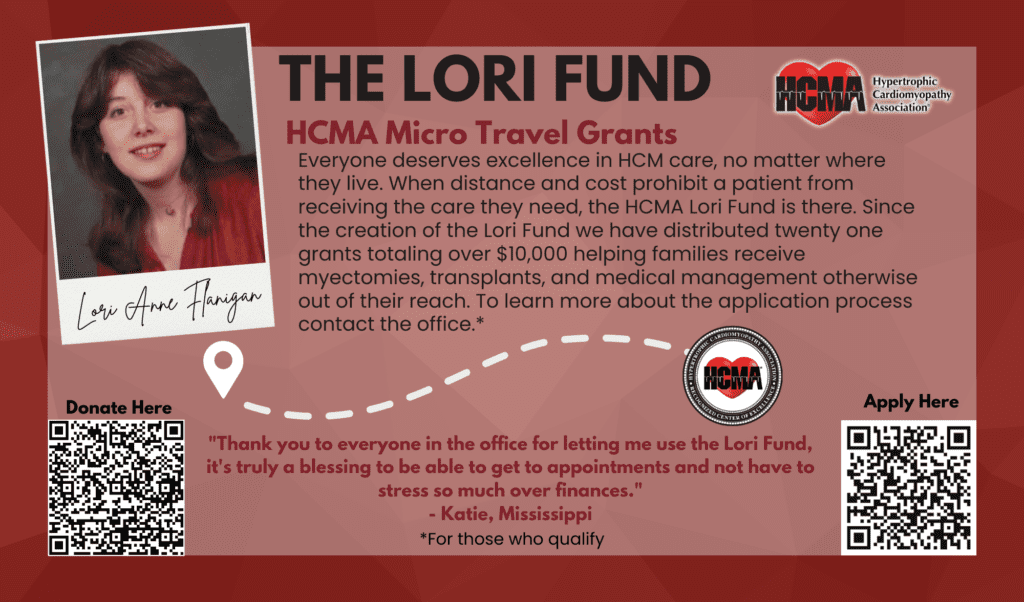
The HCMA is proud to recognize 51 Centers of Excellence (COE), where patients can be confident they will be cared for by knowledgeable, skilled HCM experts. However, the distance and financial resources needed to reach a COE can be a burden for families. That’s why the HCMA started the Lori Fund in 2023. The Fund covers up to $600 in transportation, meals, and hotels for HCM patients traveling to a COE.
Sarah, a recipient of a Lori Fund travel grant, expressed the relief provided by the program, “I can’t thank each and every one of you enough for the help along the way! Just having that extra peace of mind helped tremendously.”
Coy, an HCM patient, says he earmarked his donation to the Lori Fund because “I am fortunate to live in close proximity to excellent HCM care. I am also fortunate to have personal resources that some with HCM may not have. I hope that our contribution will allow patients with fewer resources to be able to get the same level of care that I have access to.”
Another donor adds, “I understand how difficult it can be financially to get to the right doctor, the right Center of Excellence for properly diagnosing and getting the right therapy. Along with education about the disease, getting someone to the right doctor is the most important thing we can do to support patients.”
Donating to the Lori Fund, you help ensure all HCM patients can access the care they need. Please use this link donate or apply for travel funds . Together, we can provide hope and support to HCM patients in need.
The post HCMA Lori Fund appeared first on Hypertrophic Cardiomyopathy Association.


 Translate
Translate

